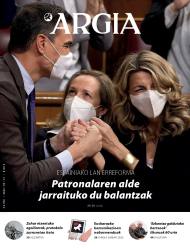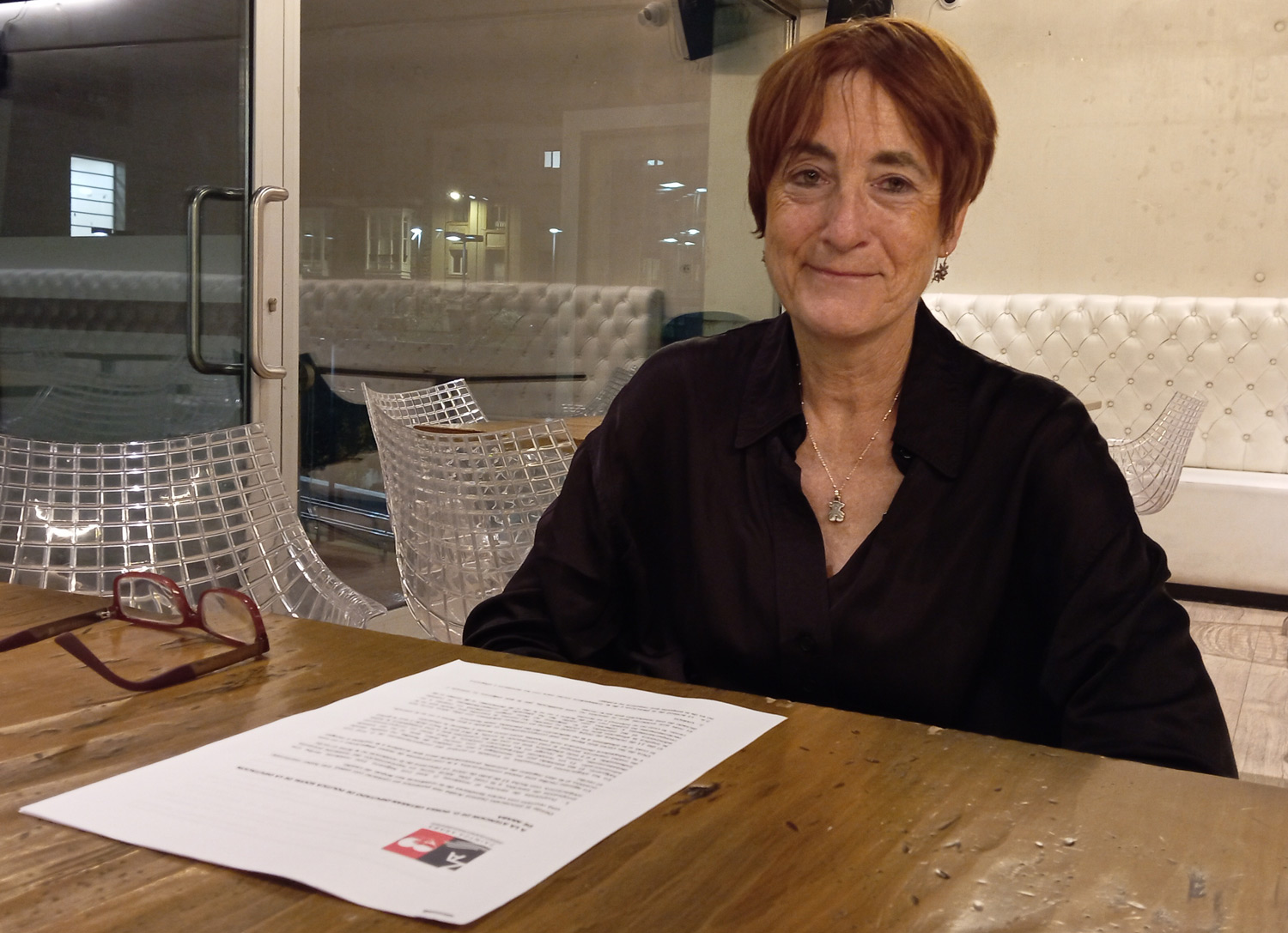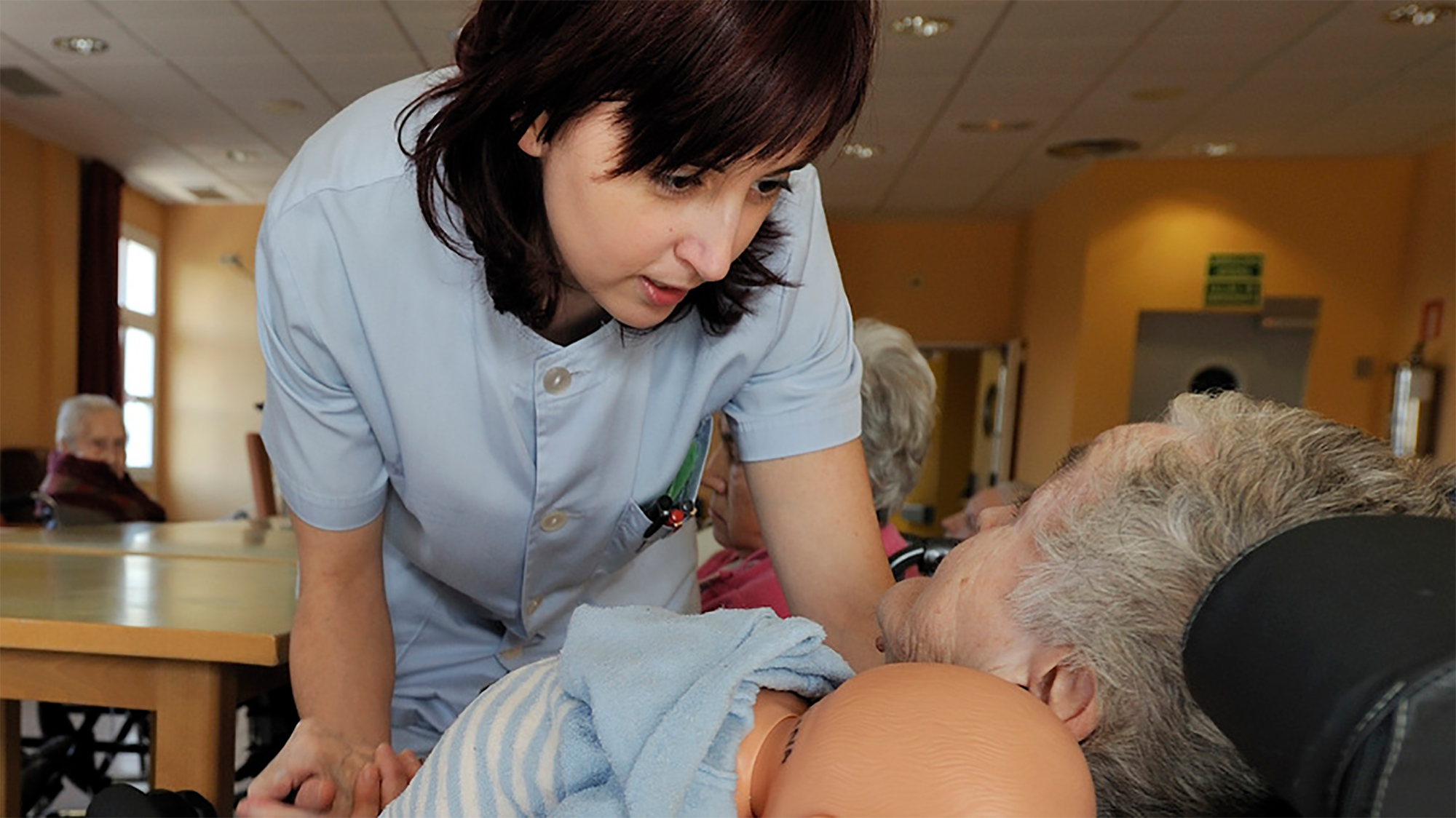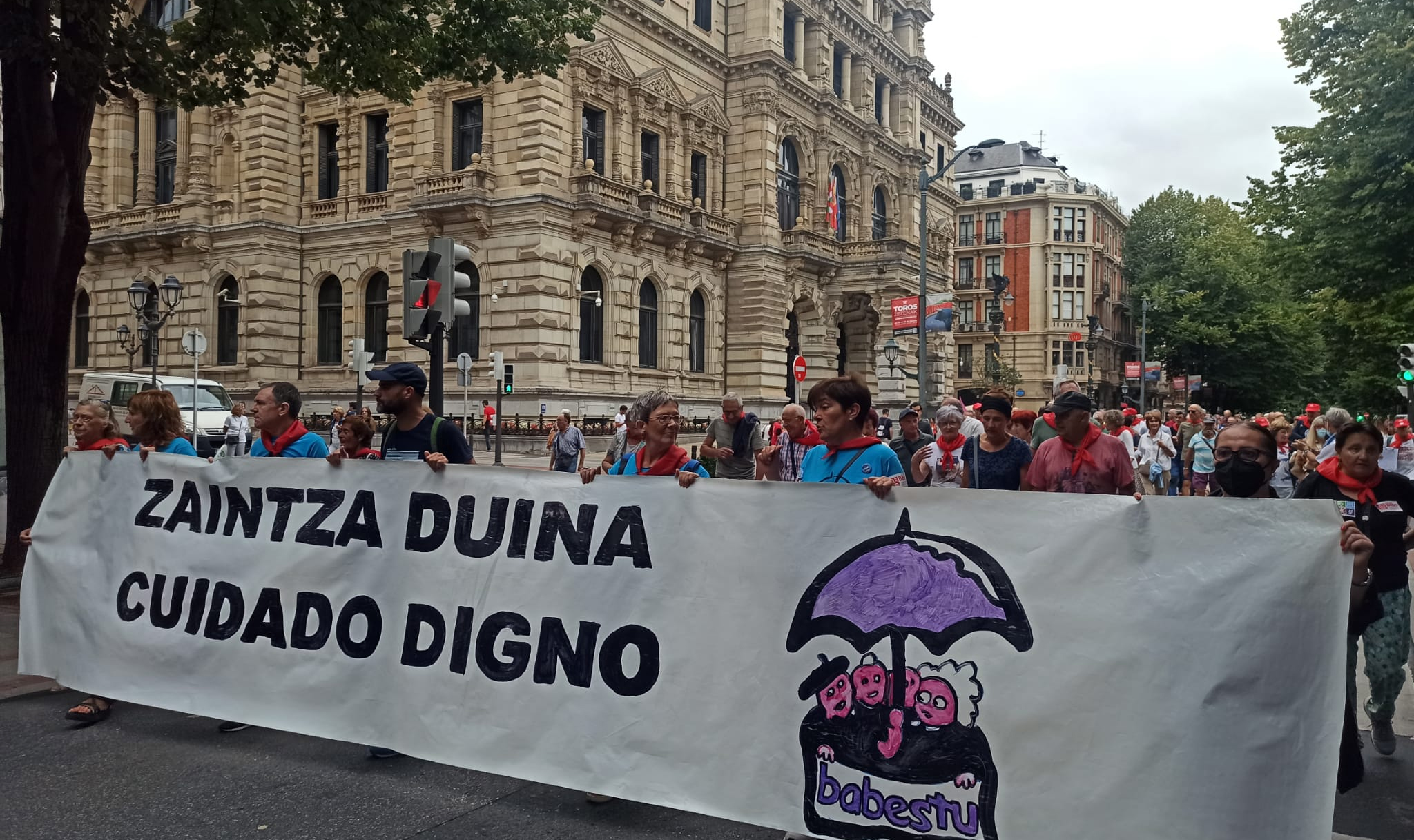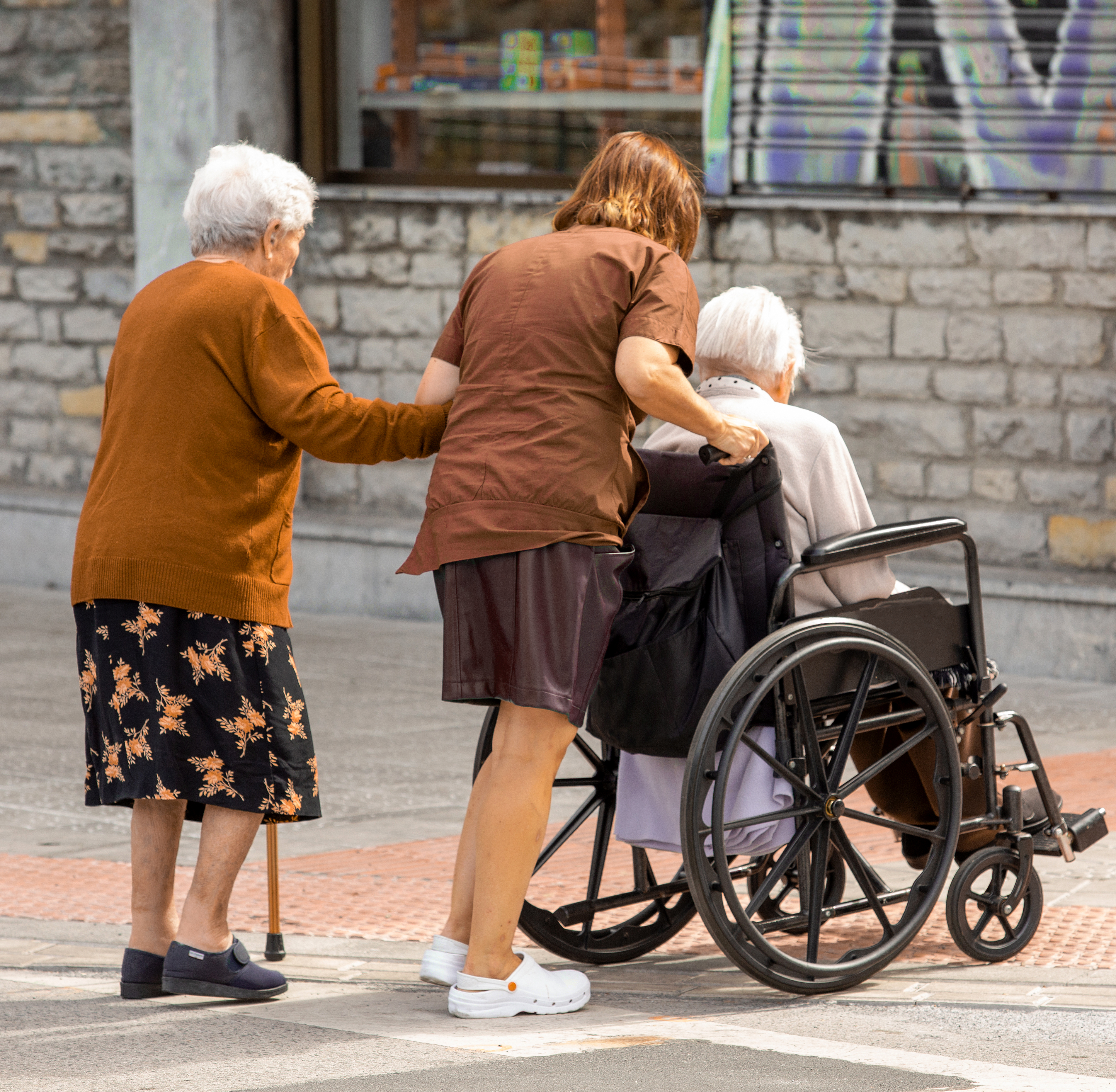They have been forbidden to live in the name of life
- Almost two years ago, they began to take successive measures to prevent the spread of COVID-19. Although it is known that the largest has been the one that has hit the coronavirus the most, and that the highest mortality rates have been recorded in this age range, it cannot be forgotten that the elderly have a life closer to death, a right to a dignified life, which has often been denied in the name of protection. Since the Association of Relatives of Dependent Elderly Persons, Patrocina Álava have remembered that for two years they have suffered “deaths, loneliness, anguish, disability, pain, intense pain, lack of empathy, poor attention”. “March 9, 2020 is a date that many will never forget. They decided to seal the headquarters without any kind of respect.”
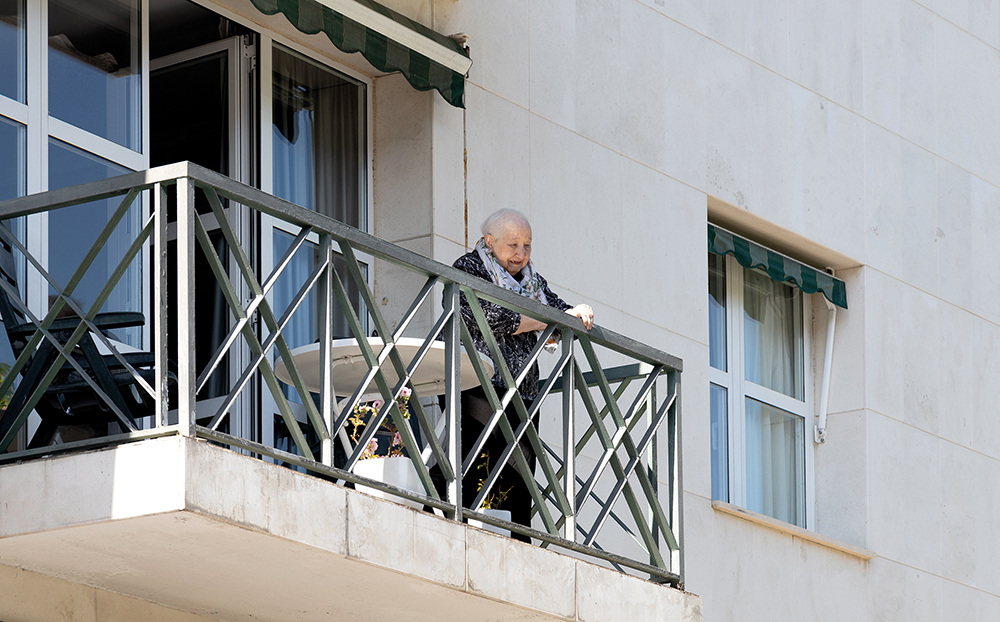
Enara Villena Otaegi, a nurse from the elderly residence of Hernani, has experienced the day-to-day life of the elderly in these two difficult years, and has told us the conclusions of the "crazy" protocols put by the Basque Government, which for months are denouncing the rest of residences and associations of family members. It is clear: the protocols do not guarantee the well-being of both residents and workers. "Residents experience extreme situations. Many people tell us that they don't want to live for that." With strict isolation and limited visits and contacts, socio-sanitary homes have become "prisons" for the elderly, and although some measures are relaxed with the Omikron variant, residents continue to feel great loneliness. According to Villena, the average number of days that remain isolated in their rooms is enormous.
In the last month the government has updated the residency protocol of the CAPV three times, the most recent is on January 17, 2022, and it has been news that the isolation of the elderly has decreased from ten to seven days, among others. However, the Protect Araba association has criticized that the institutions want to demonstrate that normality is being translated into nursing homes, but that the current situation is "very painful", far from normal. Nurse Villena thinks the same and asks that the measures for the residents be at least the same as for the rest of the population to avoid this suffering. "I invite those who make protocols to go to the nursing home when residents are isolated, aren't grandparents close? ". He criticizes that the protocols are placed from outside without knowing the internal situation: "They don't know what needs are in nursing homes, and if you know, I don't understand what they're doing."
Handwashing protocols
"The protocols only apply to get rid of their hands, without thinking about the well-being of residents and workers," he accused the government and the foreign deputies responsible for the residences. Residential personnel have little chance of making decisions in the management of COVID-19, let alone the families of residents, the elderly, nothing. Although many residents are autonomous to make their decisions, Hernani's nurse says they are treated as "tuntun". They're in the last days, weeks, months, years of life, and they can't decide how to spend them. "Keep in mind that people who come to the residences are not the healthiest and most are very old. Tomorrow they're still dead, or worse in health than they are today, and these last few years are taking them off." It claims the right of the elderly to a dignified life.
In view of this, if it is balanced, it believes that it is not worth taking such stringent measures: "It's hard to say, but it would be better for seniors to make a more normal life, assuming the risks that this entails." Right now, they're very far from normal life. According to the protocol of the Basque Government, every resident suspected of being positive must be isolated until the test result is negative. The government document says that we must register as a coronavirus appearance from the moment there is a positive case.
Villena warns that with the pandemic society has punished and marginalized older people: “We are not going to put ourselves in place, but we are all going to reach old age and then we want the best deals and care”
Therefore, those who have been in close contact will be tested and isolated even if they are inserted. Outside the residences, persons with complete immunization schedules are exempt from confinement even if they have close contact, not in the residences of the elderly. Villena warns that with the pandemic society has punished and marginalized older people: "We're not going to put ourselves in place, but we're all going to reach old age and then we want the best deals and care." He has seen his loneliness with his eyes and has become violent for both mental and emotional health: "Many times we come home in tears. When a resident tells us to cry that he prefers to die that way, his heart unfolds. They feel incarcerated." The most difficult moments of the pandemic have been very troubled and the elderly have experienced extreme situations. "At some point we saw the risk of suicide of several grandmothers." In the name of protecting the lives of the elderly, they have been taken away from their lives. In the name of health, they have been given all the conditions to make their health worse.
The burden of psychological suffering suffered by the elderly inevitably falls on the workers. For example, Hernani's nurse has stated that the feeling of guilt has been very general; if a worker tests positive, they isolate the residents who have been in contact with him, especially the auxiliaries, who have very close contact and some cannot use the mask properly. Anti-COVID-19 measures have led to contradictions among workers: "What would families think when they couldn't go to the residence, but when I could be with my friends in a bar? has thrown the nurse out of frustration.
Derogations from the protocol
The novelty of the last protocol is that close contacts in day centres should not be isolated and may continue to go to the residence. It is also exceptional if the resident has been positive in the last 180 days and is accredited by test; if he has been positive between 90 and 180 days, he will be tested but will not have to isolate it. In the case of personnel, there is a protocol similar to the rest of the population. Close contacts should not be isolated if they have a full vaccination schedule or can demonstrate that they have been positive in the past 180 days.
.jpg)
Two important nuances: on the one hand, the Government has left it up to the headquarters to decide which workers are close contacts and, on the other, in the last month they have changed the rules for close contacts inserted. Until the end of December, workers with close contacts could not go to work and leave them; the inmates could make social life, but because they were working with a risk group, they had no work. Well, according to the last amendment, only unvaccinated workers who have had close contact will be discharged, and those who have been vaccinated must go to work on condition that they have been equipped with individual protection (PPE) for seven days from top to bottom. Villena has conveyed the anger of the workers: "Torture is working for seven hours with the U.N., especially for more physical labor assistants." In addition, it does not seem fair to them that vaccinees do not suffer from low rates, given that there is a risk of infection. It is critical that this decision has been taken for lack of staff to cover substitutions and not for health reasons.
This is what is being repeatedly demanded between the staff of the socio-sanitary homes and the family members, in order to recruit more staff. Auxiliaries, nurses and cleaning staff cannot hold on to an immense workload. On more than one occasion they have been unable to cover nursing casualties because "there are no personnel", as the government itself has warned. However, Villena accuses the poor management of the shortage of nurses because they should exist, but in the same test of access to university hundreds are eliminated. Before the pandemic they needed reinforcements, now more than ever. Perform non-relevant work on COVID-19, such as arranging family visits, managing substitutions and feeding each resident.
Enara Villena Otaegi, nurse: "It looks like a joke. How do we get the residence distributed in four areas if we do not have sufficient resources to properly isolate the residents?"
Families often complain that they do not give the necessary attention to residents. Villena's answer: "It's normal, seniors pay a lot of money for care and have a high demand. But you have to understand that we can't give it all, we don't get there." The reduction of ratios is one of the main demands of strikers. In the case of the residence of Hernani, the care of the 100 residents is attended by an average of fifteen assistants and one nurse, with an average presence of one physician three hours a day. The rest of the care is gradually returned: physiotherapist, leisure staff, podiatrist, psychologist... When they needed it most, these services were taken away, "and residents have been noticed that they've gotten a lot worse in terms of cognition and mobility," says Villena. In turn, the relaxation of the measures has improved them, "since they have started to leave and have more visits from the families, their mood has improved".
Lack of close relationships
The nurse sometimes comes to mind the children with the elderly and emphasizes that they have the same affective needs as them: they need more than ever contact with their family, love and close contact. Residents have been banned from everyday joys, such as walking, having coffee with friends and family, telling stories, playing cards, etc. In addition, Villena has recalled that workers should also pay affective attention, and that before the pandemic they spent more quality time talking to residents and in close contact; now, with UN clothing, in most cases, many residents do not know the workers. "They've also been robbed of that joy."
The Government's protocol somehow addresses this lack, noting that the isolation and social isolation of the elderly are risk factors for depression, and that the lack of mobility has irreversible consequences for the elderly. Therefore, "mobility and socialization should be encouraged as much as possible", according to the protocol, "provided that the measures to avoid coronavirus contamination are complied with". Since 17 January, the novelty has been that isolated residents by close contact have the possibility to take "therapeutic walks" with their relatives.
Residents have been banned from everyday joys: walking, having coffee with friends and family, telling stories, playing cards.
On the other hand, the protocol proposes to divide the headquarters into four areas: those that have no symptoms and do not have close contact, that are isolated without symptoms but by direct contact, that can be positive for presenting symptoms and that are positive. In this way, opportunities have been established to enable mobility within these areas. In many residences, however, it is impossible: "It looks like a joke. How do we get these kinds of distributions if we don't have enough resources to properly isolate residents? ".
It is true that with the last protocol small advances have been made to calm the situation of the nursing homes of the CAPV, reducing the isolation from ten to seven days, allowing access to the close contacts of the day residences and giving the possibility of "therapeutic walks". But residents carry on their backs what they've suffered so far, and many consequences don't turn back. It is no longer enough for residents to make little progress. What families and workers are asking for is for the elderly to be allowed to live in dignity, without paternalism and without unjustifiable protocols.
To learn more, read the following reports by Onintza Irureta Azkun in the midst of the pandemic, which collect the demands of family members, among others:
"Before hanging from a thread, now cooked"
.jpg)
Kritika artean abiatu dira Gasteizko Arana klinika zena Nazioarteko Babes Harrera Zentro bilakatzeko obrak. Ez auzokideak, ez errefuxiatuekin lan egiten duten gobernuz kanpoko erakundeak, ez PSEz bestelako alderdi politikoak ez daude ados proiektuarekin: makrozentroen ordez,... [+]
Urkullu has on many occasions called for the public-private partnership that is at the heart of the capitalist system, but without any intention of explaining what that connection is today. When the public is complementary and dependent, it cannot oppress the interests of the... [+]
The images that the metal sector strike has left in Bizkaia in the last two weeks are once again spectacular. There are those who talk about the end of the labor struggle, nostalgia for the Euskalduna times, but the reality is that the number of labor conflicts in Euskal Herria... [+]









